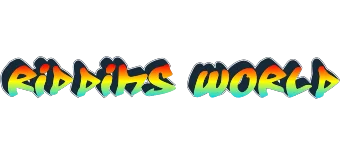Here[/embed] are some key historic moments in the development of reggae music:
- The emergence of ska music in Jamaica in the 1950s and 1960s, which served as a precursor to reggae and incorporated elements of jazz, rhythm and blues, and mento (a traditional Jamaican folk music).
- The rise of rocksteady in the mid-1960s. Rocksteady was a slower and more relaxed version of ska, characterized by a steady beat and harmonies.
- The emergence of reggae in the late 1960s. Reggae was characterized by a slower tempo, offbeat rhythms, and lyrics that often dealt with social and political issues.
- The international success of Bob Marley in the 1970s – the release of his 1973 album “Catch a Fire” helped to introduce reggae music to the world. Marley’s music and message helped bring reggae to a global audience and made him one of the most famous and influential reggae artists of all time.
- The staging of the One Love Peace Concert in Jamaica in 1978, which were organized by Marley and aimed at bringing together rival factions in the country’s political conflict.
- The emergence of dancehall in the 1980s. Dancehall is a faster and more electronic version of reggae that emerged in the 1980s and became popular in Jamaica and around the world.
- The success of reggae fusion in the 1980s and 1990s, which saw the incorporation of elements from other genres such as hip hop and electronic music into reggae.
- The establishment of reggae festivals such as Reggae Sumfest in Jamaica and Rototom Sunsplash in Spain, which have helped to popularize the genre and bring it to a wider audience.
- The evolution of dancehall music each decade has seen it transforming from one variation to another towards an even more electrical and modern, trap hip-hop based style.
- The continued popularity of reggae in the 21st century. Reggae has remained a popular and influential genre, with artists such as Damian Marley, Chronixx, and Protoje carrying on the tradition.
The Future of Reggae Music
It is difficult to predict the exact future of reggae music, as it depends on many factors such as the evolution of musical trends, the influence of new artists, and the preferences of listeners. However, it is likely that reggae music will continue to evolve and be shaped by these factors, just as it has throughout its history.
One possibility is that reggae music will continue to incorporate elements from other genres, such as hip hop and electronic music. This has already been seen in the emergence of sub-genres such as dancehall and reggaeton.
It is also likely that new technologies will continue to influence the production and distribution of reggae music. For example, the use of digital audio workstations and streaming platforms has already had a significant impact on the music industry.
Overall, it is important for reggae music to remain true to its roots and cultural influences while also evolving and adapting to new trends and technologies. This will help ensure that the genre remains relevant and popular in the future.

